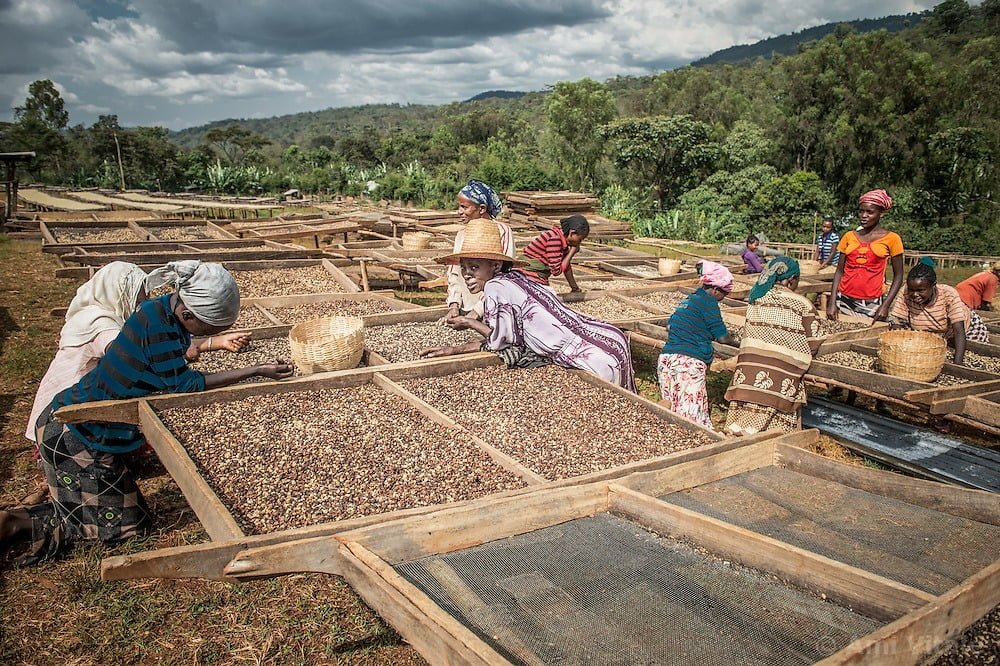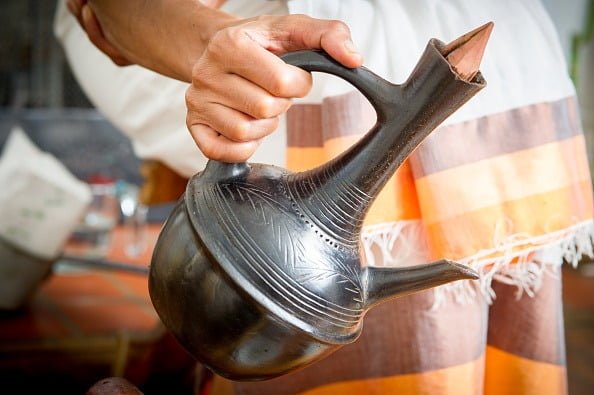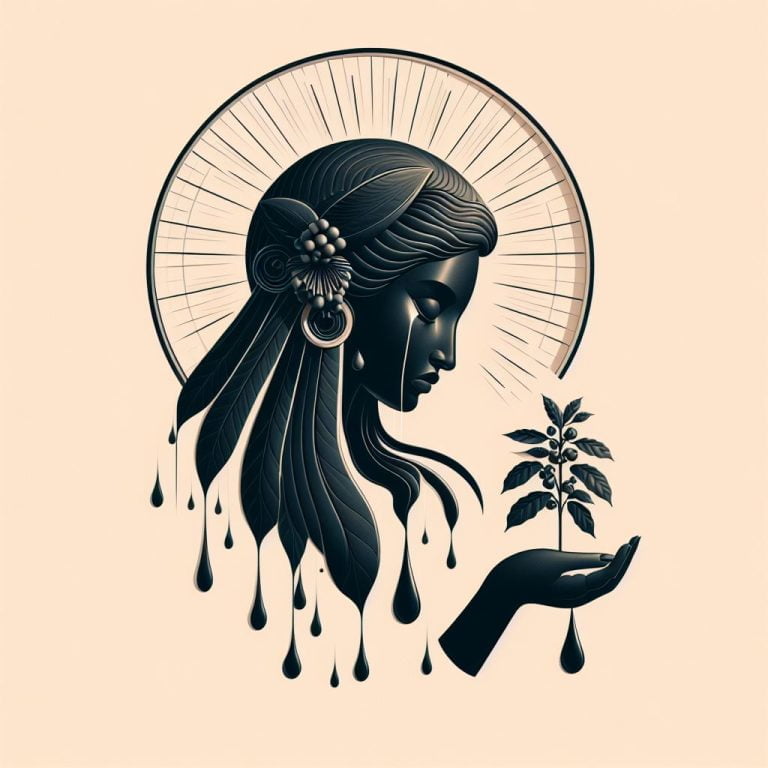Introduction to Oromo Coffee Culture
In Ethiopia, coffee culture of the Oromo people extends beyond simple consumption. Moreover, it represents a profound cultural and spiritual heritage woven into their daily lives and community practices. Additionally, coffee is not merely a beverage but a significant cultural artefact, serving as traditional medicine, a staple food, and a central element in ritual performances.
This article is referenced from the following academic sources. Thank you to author Bula Sirika Wayessa for his useful scientific articles.
Spiritual Significance and Myths
Interestingly, the Oromo people cherish a poignant legend that the first coffee plant sprouted from the tears of Waaqa, their god. Consequently, this origin story imbues deep spiritual significance in coffee cultivation, transforming each sip into a sacred act. Furthermore, the legend emphasizes the spiritual bond between the Oromo and their cherished plant, making coffee a symbol of divine providence and spiritual nourishment.
Economic Impact and Sustainable Practices
Significantly, coffee cultivation is a cornerstone of economic stability for the Oromo. Thus, it provides a primary source of income, supports family needs, and pays local taxes. Also, environmentally, coffee plants are cultivated reverently for nature; they provide shade for animals and integrate agricultural practices with ecological stewardship. Therefore, this respect for the environment is reflected in the traditional practice of not pruning coffee plants even after they cease to produce fruit, highlighting a commitment to sustainable land management.

Coffee: A Symbol of Fertility and Unity
Similarly, in Oromo culture, the evergreen nature of coffee plants represents fertility, echoing the blessings of Waaqa. Hence, the act of cultivating coffee is seen as clothing the earth, which in turn appeases the divine. Moreover, coffee ceremonies are platforms for social cohesion, where each sip symbolizes shared beliefs and reinforces the community’s unity.
Discover the Oromo coffee culture ceremony and its cultural significance.
Buna Qalaa: A Culinary Tradition
Historically, ‘Buna Qalaa,’ or ‘slaughtering coffee,’ is a traditional dish with historical significance that dates back centuries. Initially, it served as a source of sustenance for warriors. This dish—made from coffee berries mixed with butter—symbolizes endurance and vitality. Today, it remains a cultural staple, reflecting the Oromo’s resilience and resourcefulness.

Pottery and Coffee Culture: Crafted Traditions
In terms of craftsmanship, pottery is integral to the Oromo coffee ceremony, with each vessel carrying significant meaning. Specifically, the ‘Jabanaa,’ a traditional coffee pot, is revered as a container and a symbol of the spirit house. Respectfully, these pots, treated with great reverence, embody the craftsmanship and ancestral wisdom of the Oromo people.

Spiritual and Social Dimensions of Coffee Ceremonies
During these ceremonies, elders recite prayers such as “Bunaa fi nagaa nuuf kenni” (give us coffee and peace) and “Manaan fi ollaan nuuf toli” (bless our home and our neighbours), promoting themes of peace and community harmony. Additionally, holding the hot ‘Jabanaa,’ women pray for protection and fullness, showcasing their roles as caretakers and spiritual leaders within the community.
Coffee Ceremonies: A Social and Educational Platform
Importantly, the coffee ceremony is a vital educational platform where the Oromo pass on sayings, stories, and traditions to younger generations. Moreover, this ritual space allows women, the primary keepers of the coffee tradition, to discuss social issues. Consequently, it becomes a critical part of societal governance and female empowerment.
This post contains affiliate links, meaning I may earn a commission if you make a purchase through these links, at no additional cost to you. As an Amazon Associate, I earn from qualifying purchases. I only recommend products I genuinely believe will add value.

The Oromo: Africa's Hidden Nation: Uncovering the History, Culture, and Struggle of Ethiopia’s Largest Indigenous People
Conclusion: A Symbol of Unity and Heritage
Finally, Oromo coffee culture vividly illustrates how traditional practices can encapsulate the essence of a community’s identity and values. From its mythical origins to its role in modern-day Oromo society, coffee remains a symbol of nourishment, unity, and heritage. This rich tradition underscores the intricate relationship between people, their environment, and their beliefs, offering a window into the cultural significance of coffee beyond its global reputation as a commodity.
Oromo Coffee Culture FAQ
What is the spiritual significance of coffee in Oromo culture?
The Oromo people believe the first coffee plant sprouted from the tears of Waaqa (their god), imbuing coffee with deep spiritual meaning and making its consumption a sacred act.
What is the traditional Oromo dish called ‘Buna Qalaa’?
Buna Qalaa, meaning ‘slaughtering coffee,’ is a traditional Oromo dish made from coffee berries mixed with butter, historically serving as sustenance for warriors and symbolizing endurance.
What role does the ‘Jabanaa’ play in the Oromo coffee ceremony?
The Jabanaa is a traditional coffee pot revered not just as a container but as a symbol of the spirit house and a testament to Oromo craftsmanship and ancestral wisdom.
How does the Oromo coffee ceremony function as a social platform?
The coffee ceremony is a vital educational platform where traditions, sayings, and stories are passed to younger generations, and it allows women to discuss social issues, acting as a form of societal governance.
How do the Oromo demonstrate sustainable practices in coffee cultivation?
Oromo sustainable practices include not pruning coffee plants even after they cease producing fruit, reflecting a commitment to ecological stewardship and providing shade for animals.





